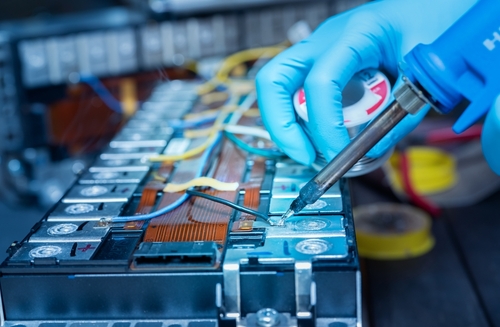
U.S. Rep. Dan Meuser (R-PA) recently reintroduced legislation that would support the battery industry by eliminating a tax on substances used in lead battery manufacturing.
The USA Batteries Act, H.R. 1594, would repeal a portion of the Infrastructure, Investment and Jobs Act (IIJA) that levies a Superfund chemical tax on 42 substances. The tax was reinstated as part of the IIJA at twice the previously enacted tax rates. Meuser’s bill would eliminate the tax on lead oxide, antimony, and sulfuric acid – primary inputs used in lead batteries which are used in vehicles, telecommunications, defense and energy generation.
“In order for American battery manufacturers to remain competitive, this tax needs to be repealed,” Meuser said on April 5. “Good-paying manufacturing jobs are essential to our industries, including several in my district, which would be impacted. Small businesses have faced unprecedented economic pressure, supply chain disruptions, and workforce challenges. Repealing this tax will level the playing field and help this industry to remain competitive with foreign producers, who are not burdened with this tax.”
The Congressmen said lead batteries are a sustainable energy source, with 99 percent of them being recycled for use in new batteries and other products. The lead battery industry employs more than 25,000 Americans in 38 states and has an economic impact of $23.6 billion.
“The USA Batteries Act will eliminate a tax that gives foreign manufacturers an unfair advantage on the cost of raw materials and harms domestic manufacturers that are producing batteries used in virtually every sector of the American economy,” Roger Miksad, executive vice president of Battery Council International, said.
The legislation would only repeal the excise tax on lead oxide, antimony, and sulfuric acid. It was forwarded to the U.S. House Ways and Means Committee on March 14 and no action on it has since been taken.